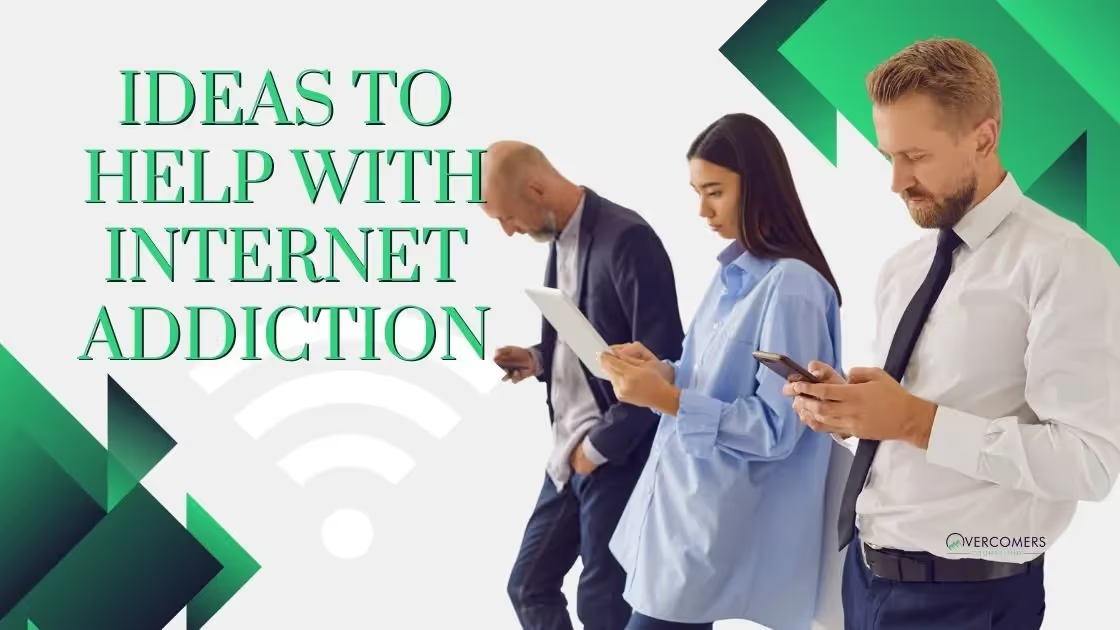The internet is no doubt an important resource, but what if it's a problem and you need help with internet addiction? The first step is to realize you have...

The internet is no doubt an important resource, but what if it's a problem and you need help with internet addiction?
The first step is to realize you have a problem, which you have done by finding this article!
We will discuss the possible reasons behind your addiction, and ways to help yourself!
Keep reading to learn more about internet addiction, and self-help tips!
It was theorized as a disorder by Dr. Ivan Goldberg, MD in 1995.
He compared excessive internet use to gambling.
Doctors, mental health counselors, and researchers have given internet addiction serious attention.
It is an issue in American as well as European cultures, which is interesting considering much of the world has no internet access.
The internet has taken over in this digital age. It is because many things that can't be done in person can be done online.
Say you are awake at 3 am and want to play a video game.
You can find someone on the other side of the planet who is ready to play.
You can also find clothing online that you can't find in the store.
For those of us who dislike phone calls, we can order food online!
You need help with internet addiction when it has interfered with your day-to-day life.
Examples of this excessive use could be not being able to stay away from pornography, online shopping, blogging, gaming, email, and/or social networking.

Internet addiction affects the brain's pleasure center.
Upon being online, dopamine is released to promote the pleasant experience activating its release.
Then, more and more internet usage is necessary to create the same pleasant response.
That creates dependency. This means that if you find online shopping, gaming, or social media to be enjoyable, and you have an internet addiction, then you'll need to engage in the behavior more and more.
Why don't we elaborate on social media use?
Each time someone gets on social media, they may get some news.
This new information keeps you coming back.
Also, there are online games that never end, which makes them addictive.
Internet addiction is related to depression and anxiety.
If you already have those, you may go online to reduce your suffering.
People who are shy have a high risk of internet addiction.
This is because going online lacks interpersonal interaction, which many shy people don't like, and it's rewarding.
There are many emotional symptoms of internet addiction.
They include loneliness, fear, boredom, procrastination, agitation, defensiveness, isolation, and feelings of guilt.
There are physical symptoms as well, which include neck pain, poor personal hygiene (such as skipping showering because that means getting offline for a few minutes), insomnia (would rather be online than sleep), headaches, backaches, and Carpal Tunnel Syndrome.
You may also get dry eyes or other vision problems.
All these are great reasons to get help for internet addiction!

Now that we have discussed background information, let us get into the treatment options!
Aside from installing software that controls your internet use, you may need more help.
Above we discussed that anxiety and depression are often tied to internet addiction.
There are anti-anxiety and antidepressant medications one can try.
These have been proven to help with internet addiction in that they've helped people cut down their time online.
You may also want to engage in physical activity, as it raises serotonin levels.
Other common treatments to help with internet addiction include recreation therapy; art therapy; equine therapy; cognitive behavioral therapy; dialectical behavioral therapy; behavior modification; individual, group, or family therapy; or reality therapy, which has a basis on people choosing behaviors to meet their needs.
Meanwhile, we encourage you to create a list of what you need to get done, or perhaps just like to do, and do some of them that don't include being online.
When you want to use the internet, choose something from your list.
Also, have you noticed you go online when you don't feel well mentally?
Or when you are just bored?
Even better reasons to pick things off your list to do to help with internet addiction.
We also encourage you to leave any tablets or computers at home when you leave the house.
When you have free time, have your schedule filled with activities that are distracting and will help with internet addiction, as you will be engaged in those and not thinking about going online.
What are you passionate about?
Think about this, and perhaps use it to find a volunteer organization that specializes in that.
If it's animals, see about volunteering at the animal shelter.
If it's food, perhaps see if you can help out at a soup kitchen.
Something else you can do is give your devices to a friend for a set period of time.
You can keep a schedule for yourself, and include a bit of internet time in it to help with internet addiction.
Try limiting your sessions to 30 minutes, although you may want to start with longer sessions first and then cut them down gradually.
You can also make it so that you do not access the internet after a certain time each day.
If you are often texting a friend, ask them to meet up in person to keep you (and your friend!) away from the screen for a while.
If you are playing games online, invite some friends over for old-fashioned board games to help with your internet addiction.
We hope that this article has provided you with some useful information on how to help with internet addiction.
There are plenty of things you can do on your own, and with your self-discipline, you can do it!
It is also important to seek out professional help to get all the assistance possible.
In therapy, you can learn more about your underlying reasons for your internet addiction and eventually get to the place where your internet use is no longer a big problem.
https://www.psycom.net/iadcriteria.html
https://theinternationalpsychologyclinic.com/10-tips-to-overcome-internet-addiction/
Alcoholism refers to a disease that is characterized by a strong craving for alcohol and an inability to control one's drinking.
If you think you might be struggling with alcohol abuse, the first step is to talk to your doctor. Your doctor can help you assess your drinking habits and recommend treatment options. There are also many different types of treatment programs available for alcohol abuse, so you can find one that fits your needs and circumstances. Additionally, support groups can be a valuable resource for anyone struggling with alcohol abuse. These groups provide a safe space to share your experiences and connect with others who are facing similar challenges.
Alcohol abuse is a pattern of drinking that leads to problems in one's personal, professional, or social life.
The best way to help an addict without enabling them is by setting boundaries and getting help for yourself. It is important to remember that you cannot control the addict's behavior, but you can offer support and understanding. With time and patience, you can help your loved one recover from addiction.
Some resources for family members of addicts include therapy, counseling, 12-step programs, and other support groups. It is important to seek out these resources to get the tools you need to deal with your loved one's addiction. You can also find help for yourself through these resources.
Some common signs of alcohol abuse include drinking more than intended, neglecting responsibilities, and continuing to drink despite negative consequences